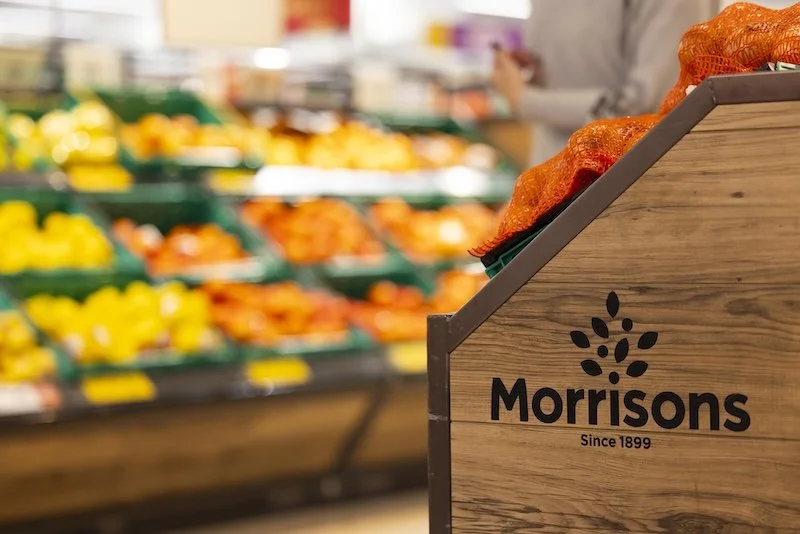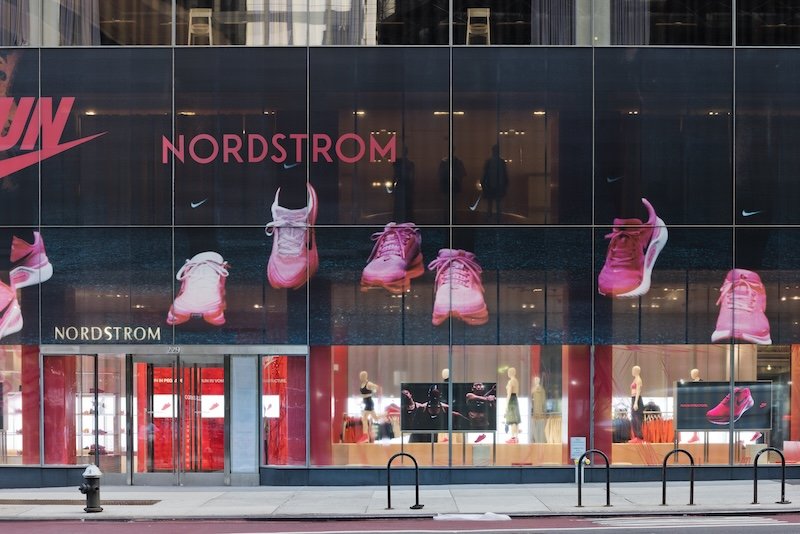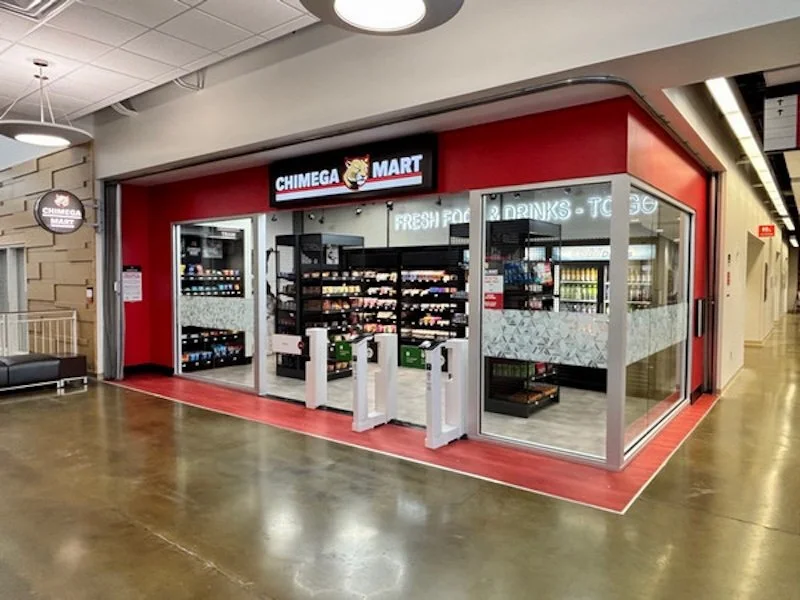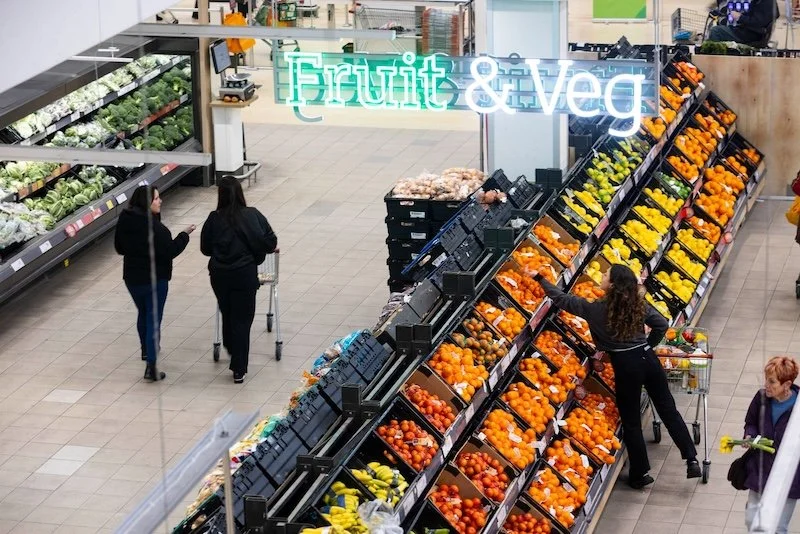What small retail businesses should do to better position themselves in the market
It is tougher than ever to be in the retail industry. There is the need to keep up with customer demand and evolve in the face of numerous challenges, whether it's customer expectations, online competition, limited resources, or the ever changing preferences of the everyday consumer.
This adds up to a tumultuous ball of pressure that any big or small retail company can find themselves struggling underneath.
Smaller businesses, in particular, are always going to find themselves under infinite pressures, but this is why small retail businesses need to focus on one simple thing: positioning themselves as different within the market.
Differentiation is such a massive concept, but in the retail sector, it's more important than ever. So, what should small businesses focus on in order to better position themselves within the market?
Optimising your online presence
In today's digital world, online presence is greatly underestimated but overly important. It's critical that we optimise our online presence. We can talk about user-friendly websites that showcase products and the value proposition, but we also need to start using search engine optimisation to better engage with the right people.
There are so many components of search engine optimisation that we need to drill down deep into. Whether this is optimising alt tags, meta descriptions, and avoiding any sense of repetitive jargon going throughout the website. Therefore, this can be a greater task than we gave it credit for.
However, in order to make the most of this, optimising your online presence will invariably position yourself as something different. There's so much competition out there that you need to start engaging with customers on their turf.
Sharing valuable content, generating word of mouth, and ensuring that all of the little components that can instigate word of mouth all come back to your business and your website.
Improving your efficiency
A lot of the things that make you different aren't necessarily what your customers will see.
In the retail sector, we can leverage technology in so many different ways to improve our efficiency, productivity, and ultimately profitability by streamlining inventory, enhancing customer service, and automating a number of front of house and back-office functions. The focus should be on creating what they call an omnichannel experience for the customers.
When we start to think beyond what the customer is literally seeing in front of their eyes but also how they can interact with us on numerous levels, results in a far more efficient business.
It allows us to gain an understanding of our customers and help to give them the things that they need to make their overall interactions with us more effective, but we should also be guiding them towards those purchases.
It becomes tougher than ever to diversify, but this is why we have to remember that every customer is an individual. This is why CRM (customer relationship management) systems have become more than invaluable in the modern day. It allows us to tailor a unique journey for each customer.
By using CRM functions, we can craft a number of different user experiences and have a far more consistent relationship with each customer. It's more essential than ever to have a unique customer journey, and this becomes even tougher when our business starts to build incrementally.
But this is why the notion of efficiency is something that should not just be relegated to the back office, and in retail, it's more visceral than ever, which is why efficiency should be the most important function that gives our business the upper hand.
Standing out from the crowd
This is another area where it becomes a greater challenge. Differentiating your business is the name of the game, and this means when we attempt to stand out from the crowd, we inevitably fall on the old tools and tactics, namely undercutting the competition by selling cheaper items.
When you undercut the competition by selling things cheaply, you are undercutting yourself.
Therefore, you need to start differentiating your business through a number of unique prospects and recognise that what will make you different does not require you to reinvent the wheel. You can fall back on time honoured tactics, such as high-quality products, exclusive deals, social initiatives, and a personalised service.
Differentiating your brand is also about engaging with your customers by creating an emotional connection. That notion of branding will over time build credibility and, more importantly, trust.
This means that we end up differentiating our business not through the products we sell or the service we give, but through the fundamentals that invariably make the biggest difference of all.
It's about stimulating trust between a business and the customer, and while trust is something we hear so much about, it is the thing that will differentiate you from your competitors.
It becomes tougher to cut through the noise, but when there are so many other competitors out there who are not looking at the long term but merely trying to boost profit now, you can play the long game and remember that the world of retail, as well as running a business, is about the marathon.
We end up thinking that we need to get a profit now, otherwise, we will fall by the wayside.
This is very simply a distraction tactic lots of other businesses can use to make you feel inadequate about your own. We can get caught up in the mind games of the notion of competition with other businesses, but it's important to stick to your own lane.
This means not going for the trends but rather thinking about the bigger picture and ensuring that you are operating with a greater purpose.
We think that we need to capture the zeitgeist, when in fact, we would be better off not listening to what others have to say and sticking to our own. That's not to say you should completely ignore advice; for example, there's a great benefit to having a mentor, especially in the retail sector.
There are those companies that are always thriving. During this cost of living crisis, naturally, supermarkets have become even more profitable and are being attacked for not passing on the profits to the consumers.
But when we start to think about how these companies have got to where they are today, there is a great lesson in having to understand that the bigger picture is a far more important aspect of doing business rather than following any small trends.
The double edged sword of adaptability
It is an industry that's constantly changing. While there is the temptation to follow trends, it is critical that we dedicate one part of our business to being flexible and adaptable. It's beneficial to utilise some of our profits in the name of experimentation.
Lots of companies benefit from reinvesting back into the business, and this is where we can use our profits for the greater good.
It's essential that we monitor our performance and gain feedback from customers, as well as competitors, to make minor adjustments while also anticipating future opportunities and challenges.
But this is where we have to take a step back and gain a crystal clear understanding of how our business is doing. One of the biggest problems most of us have, not just businesses, is that when we get a profit, we don't invest it in wise channels.
Instead of using it to line our own pockets, it's far more morally sound to look at how we can improve upon what we've already got. No matter how little profit you make, there is always the potential to reinvest it back into something that will boost your business in the long run. This is something that's not just going to improve our business, but it will also improve our mindset.
Being ready to adapt to the ever changing demands of the market is a minefield for businesses that are already making profits by sticking to a set formula. We should be pushing the envelope but ultimately being far more cautious with it.
Adaptability is a double-edged sword for this very reason and should be carefully considered. This is why going back to our financial forecasts and taking a carefully measured approach for around 90% of the operation while setting aside 10% to experiment might be the way forward.
One of the biggest mistakes people make in the retail business is completely renovating their operation, thinking that this is the way forward, when in fact they will invariably fall back on time tested tactics. There is always a place for pushing the envelope, but it has to be done in a carefully considered manner.
Retail businesses need to find ways to differentiate themselves in an ever growing sector. We need to better position ourselves for a number of reasons, whether it's to gain a competitive edge or to feel better about our abilities.
But if you are struggling to understand who you are and what you do, it goes back to creating a loyal customer base, increasing sales and profits, but also recognising that differentiation is as much about a mindset as it is about anything else.
















Continue reading…